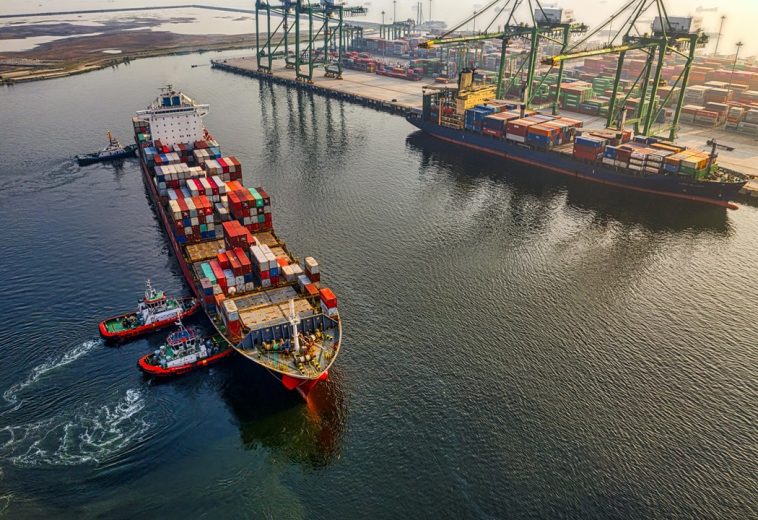Africa is no longer just a resource-rich continent waiting in the wings—it’s becoming the new frontier for industrial and economic powerhouses. With a powerful combination of young creatives, accelerating urbanisation, and transformative trade agreements, the question is not “if” but “when” Africa will dominate global production.
Between 2021 and 2023, Africa’s GDP grew at an average rate of 3.9%, showcasing remarkable resilience amidst global economic uncertainty, according to the United Nations Conference on Trade and Development (UNCTAD). The African Continental Free Trade Area (AfCFTA) is a pivotal force in this transformation, integrating a $3.4 trillion market and eliminating tariffs on 90% of goods traded across the continent. As UNCTAD’s Secretary-General Rebeca Grynspan remarked, “This is Africa’s moment to bolster its position in global supply chains, fostering economic growth and creating jobs.”
READ ALSO: Regional Supply Chains and Manufacturing Hubs: The New Era of Production
The result? Global players are taking notice. Volkswagen has established assembly plants in Rwanda, and Coca-Cola and Unilever are doubling down on investments in East and West Africa. East Africa alone saw foreign direct investment (FDI) in manufacturing rise by 4% in 2023, with the momentum poised to accelerate as global supply chains seek diversification.
The Youthful Workforce Fueling Industries
Africa’s demographic advantage is its crown jewel. By 2050, over one-third of the global workforce will reside in Africa, a youthful cohort driving industries such as textile manufacturing, electronics assembly, and more. This is not just a workforce—it’s an increasingly skilled one. Countries like Kenya and Nigeria are investing heavily in technical and vocational education, creating a pipeline of talent for high-value industries.
Moreover, urbanisation is reshaping the consumer and production landscape. Megacities like Lagos, Nairobi, and Kinshasa are rapidly emerging, housing burgeoning middle classes with a growing appetite for manufactured goods. This confluence of urbanisation and demographic growth makes Africa not only a production hub but also a lucrative consumer market.
Foreign Investment: Betting Big on Africa
Africa’s competitive edge in resources and labour is drawing substantial FDI. In 2023 alone, the continent saw $17.6 billion in FDI inflows, directed primarily toward manufacturing, green energy, and technology sectors. Countries like Morocco have capitalised on this trend, exporting over $10 billion in vehicle parts annually, while Ethiopia’s industrial parks are rapidly evolving into hubs for garment and pharmaceutical production.
The continent’s technological renaissance adds another layer to its appeal. Nigeria’s burgeoning tech sector, often referred to as the “Silicon Savannah,” is driving innovations in fintech and software development. The country is now home to some of the fastest-growing startups in Africa, supported by its youthful, tech-savvy population.
Renewable Energy: Africa’s Secret Weapon
Sustainability is no longer optional, and Africa is uniquely positioned to lead. The continent’s solar and wind potential is unparalleled, with the Sahara alone capable of powering continents several times over. This untapped renewable energy potential is a game-changer for global production. Projects like Egypt’s Benban Solar Park are already reshaping Africa’s energy narrative, providing clean power for industries while reducing costs.
Renewable energy doesn’t just address sustainability concerns—it lowers production costs. As global supply chains prioritise low-carbon solutions, Africa’s energy resources position it as a future green manufacturing hub. Yet, as of now, only 2% of global investments in renewable energy are directed toward Africa, according to UNCTAD. Bridging this gap could amplify the continent’s manufacturing prowess and environmental leadership.
Closing the Gaps in Africa’s Manufacturing Sector
Of course, there are hurdles. The African Development Bank notes that logistics costs in Africa are up to 45% higher than in Asia, hampering competitiveness. While public-private partnerships and targeted investments are crucial to closing these high logistics costs and patchy infrastructure gaps, policy inconsistencies and regulatory unpredictability also deter investors. The World Economic Forum highlights that streamlining regulations under the AfCFTA could mitigate these issues, creating a stable and investor-friendly environment.
With its demographic advantage, abundant resources, and expanding trade networks, the continent is rewriting the rules of industrialisation. But realising its potential requires investments in infrastructure and policy reforms. For global businesses and investors, the message is clear: the production revolution is already underway, and Africa is among the continents leading the charge. Africa is no longer a “potential” player; but is on track to become the world’s next industrial powerhouse.




